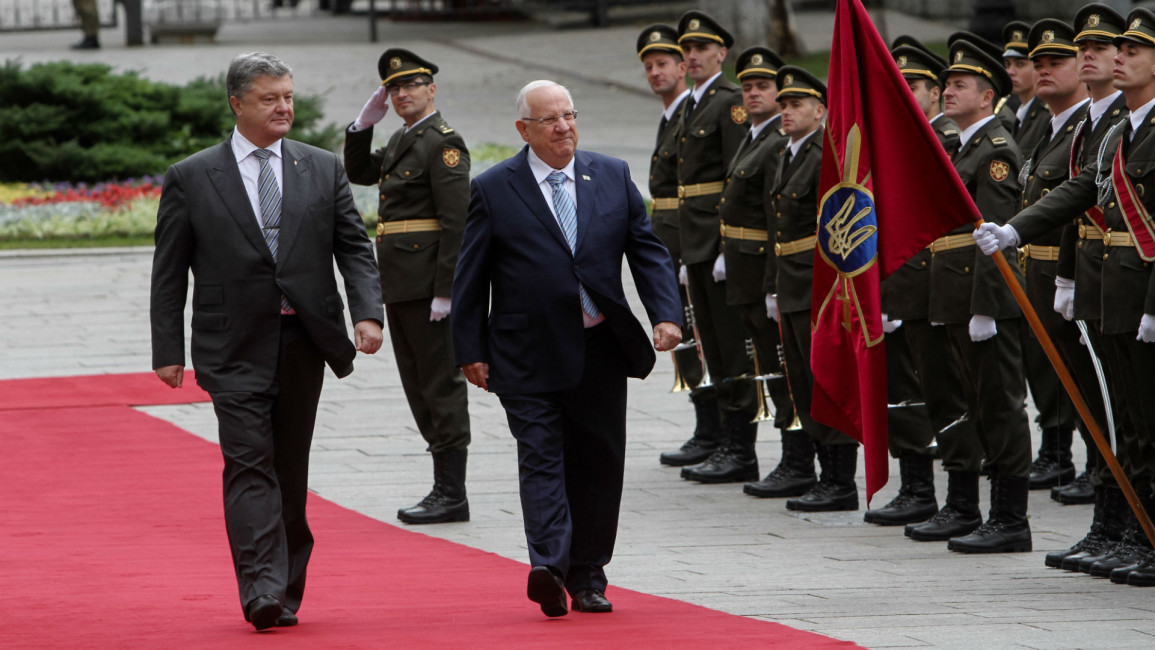Israel's 'emotional flare' over UN vote postpones Ukraine visit
The "emotional reaction" was the latest response by Tel Aviv targeting nations that voted in favour of Friday's controversial resolution that deeply angered Prime Minister Binyamin Netanyahu's government.
Ukraine, currently a non-permanent member of the Security Council, in turn summoned the Israeli ambassador in Kiev for further discussion, the foreign ministries of both countries said.
It was unclear when or if the visit would occur following the postponement.
Israeli foreign ministry spokesman Emmanuel Nahshon confirmed the visit had been postponed, while also issuing a statement saying that "our ambassador Eli Belotsercovsky was summoned to the foreign ministry in Kiev" over the issue.
Ukraine's foreign ministry said it "expressed disappointment with the emotional reaction of individual Israeli officials and politicians concerning the vote in New York".
It added in its statement that it wanted to continue good relations with Israel.
Netanyahu and other Israeli officials have responded with especially harsh language to the Security Council resolution which passed after the United States abstained from voting.
Netanyahu has alleged that US President Barack Obama "colluded" to see the "shameful" resolution through.
By deciding not to veto the move, the United States enabled the adoption of the first UN resolution since 1979 to condemn Israel over its settlement policy.
The text was passed with support from all remaining members of the 15-member council.
Reports also suggest Israel cancelled a planned meeting at next month's World Economic Forum in Davos between Netanyahu and British Prime Minister Theresa May.
It was unclear, however, whether there was any official meeting scheduled and if it was indeed called off.
British deputy ambassador to Israel Tony Kay told Israeli army radio the reports of the cancellation were a disappointment, but expressed hope for future talks.
"We want to have conversations with our Israeli counterparts at all levels... to talk about regional and other security challenges and opportunities and to develop the very, very strong UK-Israel bilateral relationship," Kay told AFP.
Israel summoned ambassadors of countries that voted for the resolution on Sunday, while Netanyahu also met with US ambassador to Israel Dan Shapiro.
Netanyahu defended his response to the UN vote in the face of criticism that he was overreacting, saying "we do not turn the other cheek".
"Not only will our relations with the nations of the world not be harmed, over time they will only improve because the nations of the world respect strong countries that stand up for themselves and do not respect weak ingratiating countries that bow their heads," he told a conference.



